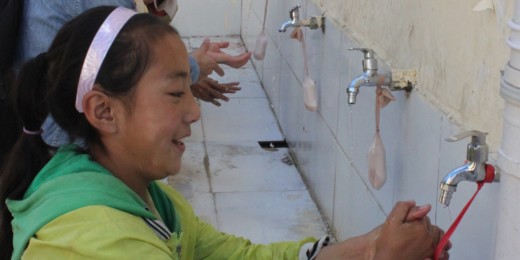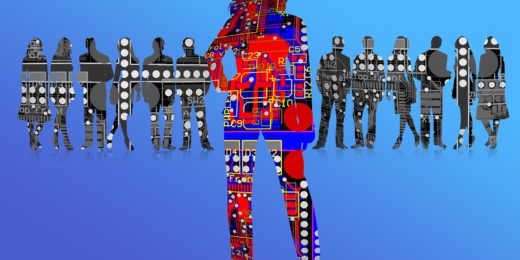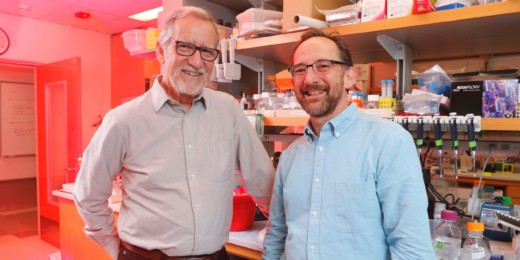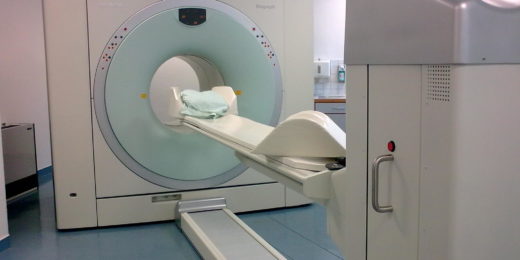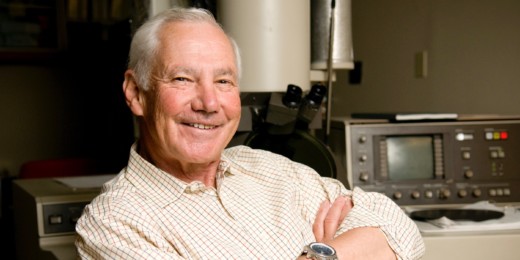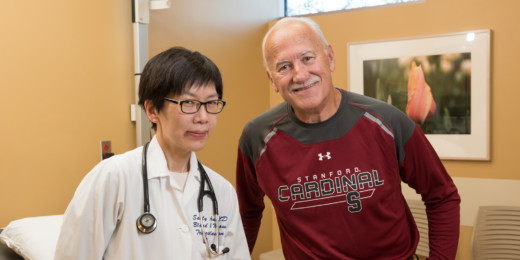In this first-person piece, medical student Steve Zhang argues that medicine is intractable and unpredictable, and luck plays a larger role than one might think.
Month: May 2018
Combating tapeworm infections and epilepsy in rural China
Stanford researchers pinpointed boarding schools in rural regions of China's Sichuan province as key spots for intervention against a potentially-fatal tapeworm infection.
New app screens for undiagnosed cases of Alzheimer’s disease
With half of all cases of Alzheimer's disease and related dementias going undiagnosed, researchers develop app to help in early screening
Countdown to Big Data in Precision Health: Understanding the hype and the hope for AI in health care
Dekel Gelbman, CEO of FDNA, speaks on the role of artificial intelligence in health care, and how he sees AI contributing to genetic diagnostic in particular.
Project Lung: Research gets personal for Stanford scientists
When Stanford's James Spudich was diagnosed with lung cancer, one of his first thoughts was of his colleague, lung development expert Mark Krasnow. Within hours a group of Stanford scientists had launched an astoundingly comprehensive study of healthy and diseased human lung tissue from one of their own.
PET scan tracer could predict efficacy of cancer “vaccine”
Scientists at Stanford have created a new PET scan-compatible tracing agent that tracks immune cells poised to attack cancer, offering a new way to predict the success of certain therapies.
Breast cancer patients increasingly receive multigene testing
Women with breast cancer are increasingly receiving multigene genetic testing rather than just screening for the BRCA mutations, new research suggests.
The perks and perils of writing for popular media
Stanford's Keith Humphreys and other academics relay lessons from experiences writing for mass media outlets, such as The New York Times and The Wall Street Journal.
Sex ratio of social group — and sex of ‘patient zero’ — affects the spread of infectious disease in flies
The sex ratio of a social group can influence the risk of getting an infectious disease as much as, and sometimes more, than an individual's traits, a Rice University study finds.
Brand name or generic? Study probes use of drug names, which ties to health care costs
Stanford's David Ouyang sifted through more than a million texts to find out if clinicians inadvertently endorse brand-name medications over less expensive generic alternatives.
Stanley Falkow, microbe hunter, dies at 84
Renowned microbe enthusiast Stanley Falkow has died at 84. Falkow was known for his generosity, wit and remarkable scientific acumen that led to the founding of the modern field of bacterial pathogenicity — the study of how bacteria cause human disease.
Meet your match: A bone marrow transplantation leads to an international friendship
When Ron Gross needed a bone marrow transplant, an international donor stepped in, providing a gift that led to a lifelong friendship.
Writing through cancer
Cancer survivor Ali Zidel Meyers reflects on joining a cancer writing group and how it helped her and others through their experience.
Diet can be used to adjust microbiome composition, new study suggests
The composition of the microbiome can be adjusted by pairing bacterial species with their favorite foods, a new Stanford Medicine study suggests.
New understanding of cellular signaling could help design better drugs, Stanford study finds
Ron Dror and colleagues used computer simulations and lab experiments to better understand G-protein-coupled receptors, which are critical to drug development. In the future, they hope to use this knowledge to design drugs with fewer side effects.
Causes of physician burnout and way to address it
The president of the Association of American Medical Colleges details factors that contribute to physician burnout and broad cultural changes that can help.



